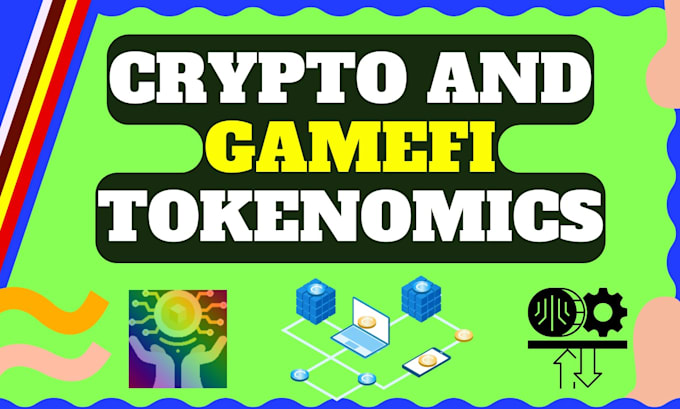Black Tube Sex Hub
Exploring the world of adult entertainment and erotic content.
Game On: The Tokenomics Showdown in Gaming
Discover the thrilling world of tokenomics in gaming! Unravel the secrets behind in-game economies and strategies that dominate the market.
Understanding Tokenomics: How Game Economies Shape the Future of Gaming
Tokenomics is a crucial aspect of modern gaming economies, influencing how players engage with virtual worlds. It encompasses the economic models that govern in-game currencies, rewards, and the overall economic ecosystem of a game. As developers increasingly integrate blockchain technology, understanding tokenomics becomes essential for players who want to maximize their gaming experience. In this context, players are not just consumers but also active participants in the economy, where their in-game actions can lead to tangible rewards in both digital and real-world currencies. This shift in perspective is changing how we view gaming, transforming it into a form of investment and offering players more control over their virtual assets.
The future of gaming is likely to be heavily influenced by the principles of tokenomics. With decentralized finance (DeFi) and non-fungible tokens (NFTs) gaining traction within the gaming landscape, players can now own, trade, and sell their in-game assets independently. This new economic model fosters a sense of ownership and value that traditional gaming has often lacked. As game economies evolve, they will continue to shape player interactions, game design, and the overall gaming ecosystem, leading to a more immersive and engaging experience. In this rapidly changing environment, the understanding of tokenomics will be vital for gamers, developers, and investors alike as they navigate the complexities of this new frontier.

Counter-Strike is a highly popular team-based first-person shooter that has become a staple in the esports community. Players work together to complete objectives, showcasing strategy and skill in intense matches. To enhance your gaming experience, consider checking out the bc.game promo code for some exciting rewards that can elevate your gameplay.
The Impact of NFTs on Gaming: A Deep Dive into Tokenomics
The emergence of Non-Fungible Tokens (NFTs) has significantly transformed the gaming landscape, introducing a new paradigm of ownership and in-game economies. By leveraging blockchain technology, NFTs enable gamers to truly own their digital assets, from unique character skins to rare in-game items. This shift not only enhances the player experience but also creates avenues for monetization through tokenomics. Players can buy, sell, and trade their NFTs, resulting in a dynamic marketplace that mirrors the real-world economy. As a consequence, gaming companies are rethinking their strategies to incorporate these digital assets, aiming to attract and retain players in an increasingly competitive market.
Tokenomics within the gaming realm provides a framework for understanding how NFTs influence economic interactions. Unlike traditional in-game currencies, NFTs imbue players with a sense of agency and value as each token is unique and can appreciate over time. This leads to various opportunities, such as creating in-game economies where players can earn rewards through their gameplay, ultimately leading to the concept of play-to-earn. However, it also raises questions about sustainability and the environmental impact of blockchain technology. The balance between profitability and ecological responsibility remains a key challenge for developers venturing into NFT gaming.
Are Play-to-Earn Models Sustainable? Analyzing Tokenomics in the Gaming Industry
The play-to-earn model has gained tremendous popularity in the gaming industry, allowing players to earn real-world value through gameplay. However, the sustainability of these models is under scrutiny. One critical aspect to consider is tokenomics, which refers to the economic systems surrounding cryptocurrencies and in-game assets. A well-structured tokenomics model can encourage player engagement and ensure a balanced economy, while a poorly designed one can lead to inflation and eventual collapse. For instance, many games that issue tokens without sufficient demand or utility risk creating a surplus, resulting in decreased value for players.
Moreover, the sustainability of play-to-earn games hinges on the ability to create a self-sustaining ecosystem. To achieve this, developers must implement mechanisms such as burning tokens, limited supply caps, and incentives for long-term investment. This ensures that while players can earn rewards, the economic model does not spiral out of control. Ultimately, as the gaming industry continues to evolve, understanding the intricacies of tokenomics will be essential for determining which play-to-earn models are viable in the long run, shaping the future of gaming experiences.